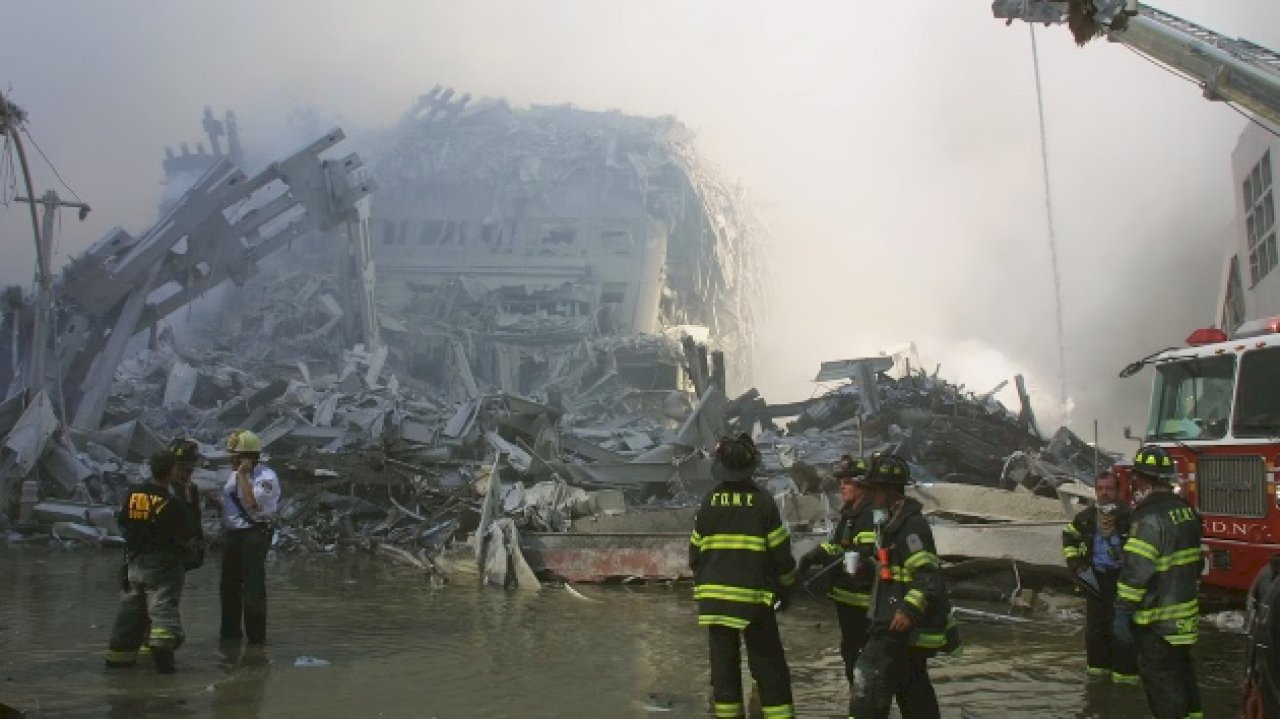Listeners:
Top listeners:
-
 play_arrow
play_arrow
94.3 Rev-FM The Rock of Texas | Where Texas Rocks
-
 play_arrow
play_arrow
99.1 The Buck Texas Country's Number 1 Country
-
 play_arrow
play_arrow
103.7 MikeFM Your Texas Hill Country Mix Tape
-
 play_arrow
play_arrow
KERV 1230 AM
-
 play_arrow
play_arrow
JAM Sports 1 JAM Broadcasting Sports 1
-
 play_arrow
play_arrow
JAM Sports 2 JAM Broadcasting Sports 2
New York senators urge immediate action to fix the 9/11 health program as survivors face delays

(NEW YORK) — Nearly 24 years after the 9/11 attacks, New York lawmakers say the health program created to care for survivors and responders is faltering and they’re demanding answers.
In a new letter to Health and Human Services Secretary Robert F. Kennedy Jr., Senators Chuck Schumer and Kirsten Gillibrand raised concerns about staffing shortages, frozen research grants and ongoing communication blackouts at the World Trade Center Health Program (WTCHP), which provides care to more than 140,000 people exposed to toxic dust at Ground Zero, the Pentagon and Shanksville, Pennsylvania.
“This is unacceptable,” the senators wrote. “Individuals with 9/11-related conditions should not have to rely on repeated uproars from the public and the media to obtain the care they are owed under the law and so desperately need.”
The senators pointed to a pattern of administrative setbacks over the past six months, including a hiring freeze, restrictions on staff travel, and the halting of key steering committee meetings. While some staff have been reinstated, they noted that the program still operates with fewer people than when Secretary Kennedy took office in February
The WTCHP was created under the James Zadroga 9/11 Health and Compensation Act to provide long-term medical monitoring and treatment to those impacted by the attacks.
Last year alone, enrollment grew by 10,000 people and at least that many more are expected to enroll in the coming year, according to Citizens for the Extension of the James Zadroga Act, an advocacy group for 9/11 responders and survivors. But with only 80 staff members currently supporting the program — down from the authorized level of 138 — advocates say delays in care and treatment approvals are growing worse.
“I have always fought to keep the funding and maintaining of the World Trade Center Health Program a bipartisan cause, and while I continue to look for a Republican partner in the Senate, I am proud of the strong partnership I have with Representative Garbarino and his House Republican colleagues,” Senator Gillibrand said in a statement to ABC News.
She added, “Right now, the main issue is the care of the responders and survivors who put their lives on the line when our nation was in its darkest hour. We are seeing deep logistical issues in the program that Secretary Kennedy must address. The ball is in his court for how we can best assess next steps so that responders and survivors continue to receive the lifesaving care that this program provides and that they deserve.”
One critical concern the letter points to is the lack of communication. The senators say in the letter that an ongoing “temporary” communications ban, which is now in its eighth month, has disrupted routine meetings and cut off vital feedback from the 9/11 community. The senators say program staff are also barred from traveling to monitor clinics and contractors, which lawmakers warn could result in billing delays and lapses in care.
Also on pause is the petition process that allows for the consideration of adding new illnesses to the list of covered 9/11-related health problems, including cardiac and autoimmune condition, according to the senator’s letter. The program had promised decisions by March, but none have been announced.
The senators also questioned how a planned reorganization, which involves moving the WTCHP under a new agency called the Administration for Healthy America, will affect staffing, research and oversight.
Many 9/11 health advocates applauded the letter, agreeing it’s time to get the program moving after months of inaction.
“Given Secretary Kennedy’s record of chaos for the first six months of his administration and with the 24th Anniversary of 9/11 just a few weeks away, Senators Gillibrand and Schumer are calling attention to continuing issues with the World Trade Center Health Program that the Secretary must address,” said Benjamin Chevat, the executive director of Citizens for the Extension of the James Zadroga Act.
John Feal, a prominent 9/11 advocate and founder of the FealGood Foundation, said he is also grateful to the senators for their support of survivors.
“We shouldn’t keep having to have this conversation,” Feal said. “Kennedy needs to be held accountable, and I hope he honors this program and protects it from future cuts.”
Gary Smiley, a former firefighter who is a survivor of the attacks on the World Trade Center and now the WTC fire inspector’s liaison, agreed that Kennedy has not done enough for the program.
“The administration has promised us time and time again that this communications pause was temporary. Eight months is not temporary. Eight months is a failure to act,” Smiley said.
ABC News reached out to HHS for a response but did not receive one immediately. However, at a senate hearing in May, Kennedy acknowledged of the program that “We made a couple of mistakes,” and promised to address them.
“With the 24th anniversary of 9/11 approaching,” the senators wrote, “we must do everything in our power to uphold our promises to those still suffering from the aftermath of that day.”
Copyright © 2025, ABC Audio. All rights reserved.
Written by: ABC News
Similar posts
-
Top popular

Ingram man charged with murder after fatal shooting

Kerr Crime Stoppers offering reward up to $5,000 for information in last week’s non-viable school threat

KISD asks parents to communicate with children about words and actions after ‘copy cat’ threat note found at middle school

City of Kerrville Parks and Recreation reminds citizens that a Red Flag Warning is in effect until further notice

City of Kerrville says that May 7 General and Special Elections will proceed



